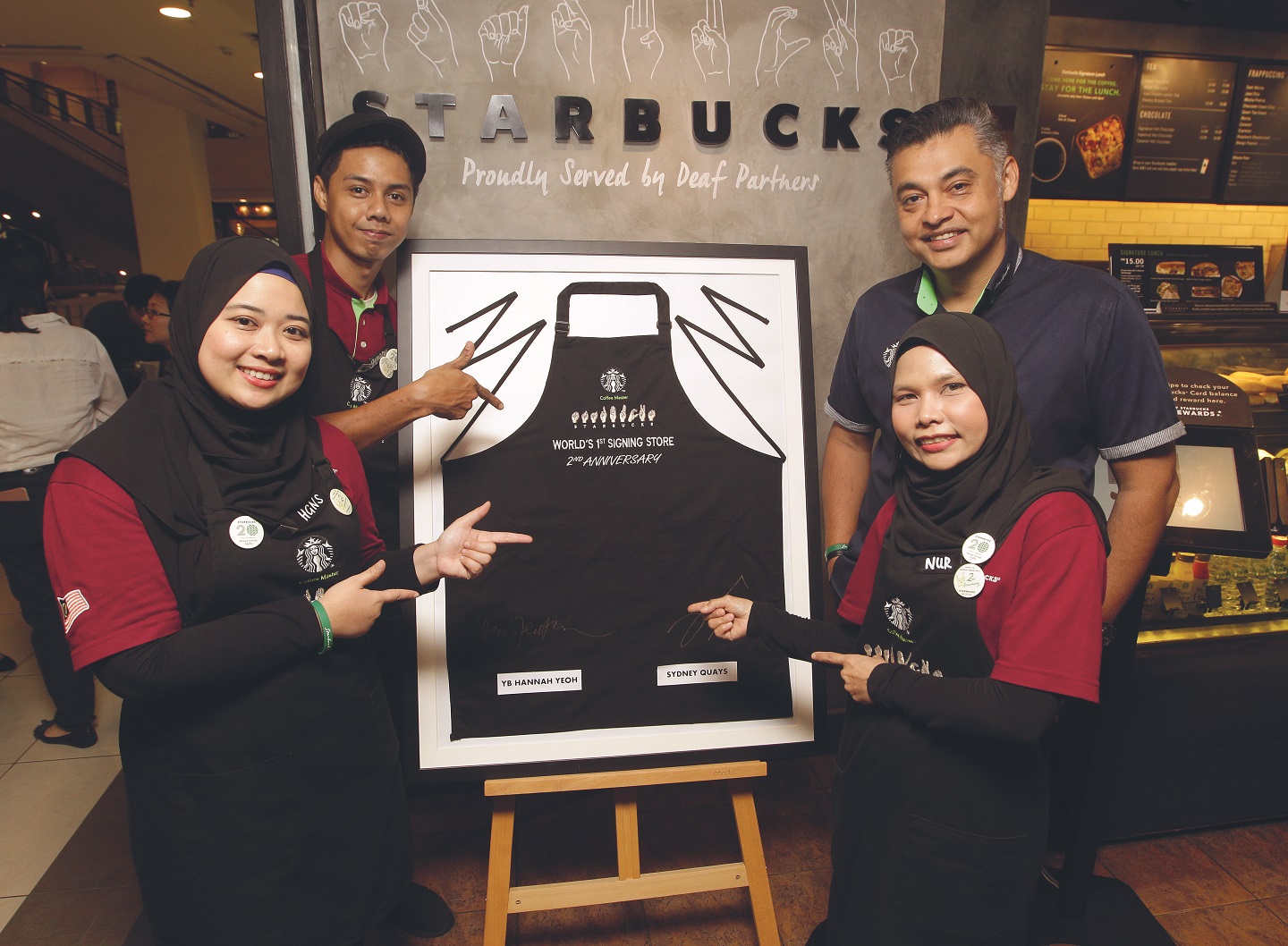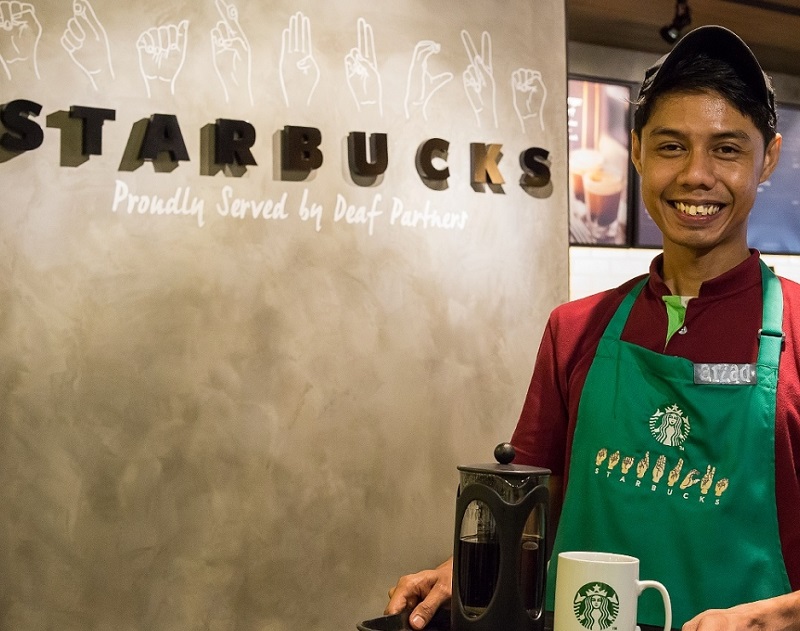
From left: Store manager Hasanah Othman, Muhammad Aizad Ariffin, is the world’s first deaf shift manager, Berjaya Food Bhd group CEO Sydney Quays and another partner Nur Aizat Mohd Rosli (Photo: Haris Hassan/The Edge)
At a glance, the Starbucks outlet located on the second floor of Bangsar Village II may look like just any other outlet of the coffee chain, but something special has been brewing for the past two years already. The first of its kind worldwide, all its partners — a term to refer to Starbucks’ baristas — are deaf, save for the store manager. A closer look reveals that all the partners are clad in black aprons — the badge of honour worn by certified coffee masters — an attestation of quality and commitment to the job.
The store boasts another first for the brand: one of the partners, Muhammad Aizad Ariffin, is the world’s first deaf shift manager. Before this, hearing-impaired partners had been employed at various outlets but never in frontline roles. According to Berjaya Food Bhd group CEO Sydney Quays, this young man inspired the concept of this store in some ways.
Aizad, 31, with store manager Hasanah Othman interpreting his sign language, says he has worked with Starbucks for six years and his promotion to shift manager has been the best aspect of his job thus far. More importantly, he tells us he continues to enjoy serving customers daily and “wants to build a career in Starbucks as there is opportunity to grow here”.

Quays recalls that when the idea was first pitched, Starbucks’ US headquarters was not sold. But two years on, Starbucks Signing Store in Bangsar has proved it was indeed a step in the right direction, both for the brand and the community it operates in. That decision also marked the beginning of a partnership with the Society of Interpreters for the Deaf (SID), and the store was set up within one year. “SID provides us with the gateway into the deaf world,” Quays says about the NGO’s role in enlightening Starbucks on the culture and sensitivities of the deaf community.
That said, the hiring and training is very much typical, with the aid of a learning specialist and translator from SID to see what is suitable for the trainees’ learning needs. A distinguishing factor would be that the trainers have to first learn sign language. To foster better communication, other employees involved in the hiring process — from accounts and HR department to the store manager — learn to sign too. Quays assures that all benefits and salaries remain the same as those accorded to hearing partners.
For the past two years, the Signing Store has created awareness of the importance of inclusivity and diversity in the workplace. In addition to deaf tour groups who come to experience the store, sign language classes are held twice a month and serve as a platform for partners to mingle with the public as well. For the partners’ benefit, empowerment workshops take place every quarter, with key deaf speakers sharing their experiences to motivate them.
For another partner, Nur Aizat Mohd Rosli, it is the sense of conviviality and camaraderie in the store that she thoroughly enjoys. “Partners help one another; we work as a family. If I don’t know how to do something, someone will help me,” she says. Having worked at the Signing Store since its opening two years ago, she concedes it can be a challenge to serve hearing customers due to the language barrier but shows no indication of letting it dampen her spirits.
While the store has much to be proud of in its own right, a strong testament of its success is news of a second signing store — modelled after Malaysia’s — scheduled to open in the US in October.
“[It is] Important for people to come together and not discriminate … I think the biggest value is embracing diversity and inclusiveness, which our brand and global company has valued since the very beginning. Treating everyone with respect and dignity is also part of our values,” Quays says in revealing plans to open a similar store in Penang, which is the second biggest local market for the brand.
This article first appeared on Oct 1, 2018 in The Edge Malaysia.


